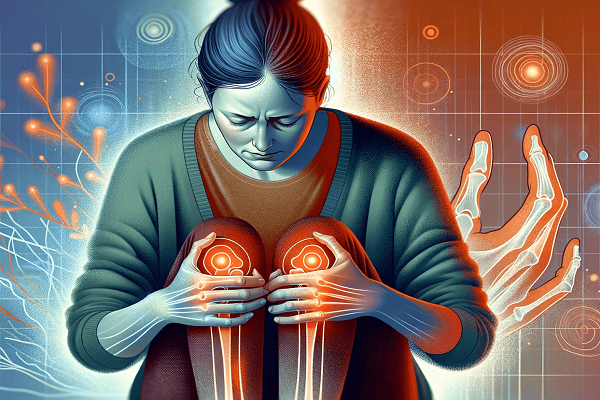Last September, when Lady Gaga announced she had been hospitalised due to Fibromyalgia, the world listened.
Subsequently, FM surfaced into the media’s attention with publications like The Guardian and The Independent publishing features to explain the condition to those who had never heard or experienced it.
In short and by definition, Fibromyalgia is a long-term condition which causes wide-spread pain around the body. Correlating symptoms include increased sensitivity to pain, muscle stiffness, extreme fatigue, difficulties with mental processes, irritable bowel syndrome, headaches and depression. A cocktail of shit which drags you behind the rest, physically and mentally.
The disorder affects a mere 5% of the worlds population and is predominantly found in women. I am one of those women and so is my mother.
Today, I had plans to finish off a six-month long research feature but I have awoken to the limbs of an elderly woman and the fatigue of a bear in hibernation. My life has got to the point where I don’t complain or express to others how shit I’m actually feeling because the harsh reality is that people (including your closest friends and ‘partners’) shut off. Their eyes literally turn a blank and unconsciously shrug it off because they can’t see it — Fibromyalgia is invisible and therefore, makes you feel so.
So for anyone who is marginally interested, I will attempt an introduction of how a typical, twenty-four hour period with the condition feels like.
Symptoms outside of the flare-up.
Firstly it operates in waves. There will be weeks where you feel almost like yourself and take advantage of the opportunity to do all the physical errands that accumulated while you were bad. Cleaning, exercising, shopping, dying your hair, running across town to pick something up etc etc. Those average, mundane activities which wouldn’t cross another’s mind to be problematic are reduced to a time frame which is entirely dependant on your physical strength for someone with FM. Which means, as an indirect symptom, your daily routine is severely compromised and you are constantly thinking ‘Will I be strong enough to do a food shop tomorrow?’
These are the symptoms which never simmer, while waiting for that inevitable wave on the horizon.
The balancing act.
Physical activity is limited. Living with FM is a balancing game, prioritising such errands before others because a food shop will literally banish your arms for the rest of the day. You are constantly juggling errands and excursions because you are aware of the price to pay at the end. Your muscles are a currency which once spent, take a long time to recuperate.
Brain fog.
The biggest battle of all. Brain fog is ugly, frustrating and depressive. It feels as though the voltage of electrical activity in your brain has been forcibly turned down. The conductions of sensory reactions which normally operate at regular speed become slow, stagnant and muggy. Words dissipate from your tongue and subject matter washes into a blur of water colour which leaves you hanging, swinging in a tumble weed moment of ‘what the hell am I trying to say?’ Concentration, co-ordination and emotion are cut to tree stumps in a misty, humid forest of your mind. You can see the tree’s but can’t quite reach them. It’s incredibly frustrating. And difficult.
Fatigue and insomnia.
Regular healthy people feel tired when they have naturally exhausted they’re body and minds. People with FM (amongst Anemia and other conditions) feel tired constantly. Being alert is a gift which shines only a couple times a month. Then, insomnia will punch you in the face out of no where and trigger a flare-up. Sleep may not deepen to REM for several days, and by Tuesday you are a zombie of your own accord. Fatigue has a domino effect on other symptoms and the rest of your life. Friends can’t understand how tiring a party can be or a tutor will never understand how a 3 hour shorthand lesson makes you want to throw up from exhaustion.
Sensory overload.
This is the part which takes a while to understand, because at first, you genuinely don’t question the annoying interference of bright lights or loud noises. But slowly, it seems apparent that this sensitivity is acute and unlike ‘regular’ people. My ex-partner couldn’t understand why having the washing machine on and the radio was too much for me, and she was really quite horrible about it too. Sensory sensitivity can interfere with your daily routine, disturbing your peace of mind and sadly, cause tension at home.
And now, ladies and gentleman, welcome to the wave you knew was coming anyway.
Early morning.
Waking up on a bad day is bad. The first few seconds of consciousness tells you this because your body weighs a tonne, indenting the mattress like a lead-based statue. Your skin is stretched and your muscles burn beneath it. Opening your eyes requires a ridiculous amount of effort, which only highlights the challenge you have ahead; getting up.
Shifting your limbs at this point is as horrible as you might imagine, like lifting a full 20kg weight before breakfast. So naturally, you choose not to move because it hurts too much. Instead, you simply lie in the indentation contemplating how the fuck you’re going to face the day, feeling weaker than you ever thought were possible.
Eventually, you stir up the energy to lift your back and crawl out from under the duvet to put the soles of your feet onto a surface which hurts to touch; the floor. Standing is an inconvenient necessity. The strain of it shoots up through your body as you try to manoeuvre it to the bathroom. Your body is not your own at this point. At least, that is how it feels for me. It’s foreign, it’s a burden and it’s really fucking sore. It’s as though your skin is a straitjacket and the most simple of movements nears impossible. Brushing your teeth requires the same amount of effort as successfully hitting a punching bag. Again and again with the smallest degrees.
Brain fog stops you from remembering where the coffee is. Your arms fool you into thinking the cup weighs more than it should, with the strain of it in your hand causing your joints to scream. Your wrist twinges as you fill the kettle and placing it back on the base feels as though you have ran a marathon on your hands. Everything, absolutely every, single, little movement is prolonged in aches, pains and stiffness which makes you want to cry because feeling this pathetic from the most simple of tasks is hard to swallow. I’m 25-years-old. Why do I feel 90?
Late morning.
Forget what you had planned today, it’s not going to happen. Everything on your to-do list will have to wait because you’re physically unable to do much of anything. This is particularly difficult for those who want to succeed in life. You want to work, more than anything but your body isn’t giving you that privilege today. Making breakfast was hard enough and your arms are now sizzling hotter than the fried eggs you just about managed to chew.
Two cups of coffee and a steady breakfast/brunch perks you up a fragment. You can move your limbs a millilitre more than when you first woke up 3 hours ago because that’s how long it took to get downstairs and begin the day. You stand with a little more ease and hobble over to your desk where your laptop is waiting.
Lunch.
Attempting to write an article or conduct any kind of research becomes a weighing task, especially when your fingers hurt with every tiny tap on the keyboard. The fatigue is so strong that you feel dizzy, eyelids flittering in a battle to stay open. The harder you fight, the more your head spins and your body just wants to give up and shut down. It requires every ounce of your thinning, limited energy to stay awake.
Coffee number 3 is another sacrifice because although the caffeine helps you to keep going, it also extenuates the pain. Your bones feel as though a layer of the substance has laced their every surface, poisoning the marrow and adding to the list of shit which is pulling you under water. This reaction is common with foods high in sugar and carbohydrates for people with FM. Not to mention the unpredictable food intolerance’s that your stomach decides to pull out the bag at any given moment.
Late afternoon, your to-do list might have one and half things crossed off and your internet history contains more cooking videos than legitimate research sources. It’s probably around late afternoon, when the fog subsides enough for you to have a straight thought, that someone with FM realises how much the condition holds you back, and how much it costs you. Today has been a painful battle with your hopes and dreams slowly, fluttering away.
The evening.
Depression and discomfort. By this point, the pain has usually, dulled into a manageable background noise if at least only for a few hours because the physical activity of preparing dinner or walking the dog will bring it all back again. So you have to think methodically and tactically. Chopping vegetables is going to hurt your hands, a stir fry is going to hurt your elbows. The frozen fish in the freezer, however, won’t. So you stick yet another piece of GM crap into the oven and hate yourself all over again for not being able to do the most simplest of things.
While the fish is heating, you decide to read a book on the sofa. Sitting there is nice, the book is great and your eager to find out what happened to the miracle child. One chapter later however, the exhaustion of holding up the book starts to build in your arms and no matter how hard you try to ignore it, it will always be louder than your capability of doing so. You rest your arms, palms up, head back and eyes closed, pleading with God to allow you the pleasure of reading. But not today, today is a bad day.
The night.
Pins and needles ripple through your digits at 250° as you lie on your bed contemplating the useless day you had. The pain has changed, it’s morphed and instead of the incredulous weight first felt in the morning, the night turns to a deep burn, from within. Your muscles are on fire and your skin sizzles into crispy, human bacon as your mind races against you, punishing you for the useless, unproductive life you led today. You feel sick knowing it’s Monday tomorrow, knowing you will have to wait a whole week before getting another chance to try and do all the things you wanted to do today.
The burn is so static that you’re genuinely stunned you can’t hear your flesh disintegrating. That you can’t hear your soul disintegrating. Pressures from the pillow burns. Texture from the duvet pinches. No matter how or where you lie you cannot get comfortable because your body is on hyper-alert which conceives your central nervous system into thinking that the smallest of movements, the faintest of touches, could kill you in a single moment. And by this point, you wouldn’t half-mind because the pain killers you took earlier have done jack all anyway.
For those with fibromyalgia, complaining about it’s symptoms gets very old, very quickly because no one, quite literally no one, wants to hear it. Living with FM can be reclusive and lonely. Friends don’t understand why you can’t do certain things, or go certain places or why you feel the way you do. And as a result, you give up even trying to explain or acknowledge your pain in public because there’s no point.
Overall though, there exists a unique humbling which comes from a painful condition like FM. You can’t die from it, and neither will you be reduced to a wheelchair (for life, anyway) and as shitty as it is, as limited as you feel, it could be worse.



